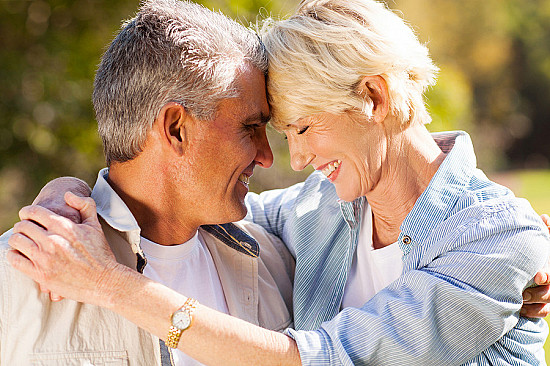What You Need to Know About Vat in the UK?

If you’re looking to sell goods or services, it’s important to know the rules about Vat in the UK. Food and drink are generally zero-rated, but some items are not. Generally, businesses must register with HMRC to charge VAT. You should also register if you’re a retailer to avoid double-taxation. Read on to learn more about Vat and how it applies to your purchases. In this article, we’ll explore how VAT works in the UK and when to register.
Food and Drink are Generally Zero-Rated for VAT
As a consumer, you may wonder whether food and drink are taxed at a lower rate than other goods. Fortunately, the UK government has a policy that aims to make these products more affordable. The general rule is that food and drink products are zero-rated, which means they’re free of VAT. However, some products are excluded, such as protein drinks. Here’s why. Generally, food and drink are zero-rated for VAT, which means that you’ll have to pay less tax than if you sold them to someone else. Zero-rated products include most products consumed for human consumption, and some supplies for the food industry. However, some products are standard-rated, including food and drink for catering purposes or used as an ingredient in processed foods. Fortunately, there are still some exceptions.
Savory Snacks
Savory snacks are generally zero-rated. Some examples include jaffa cake and chocolate digestive, which both have chocolate coverings. Some food products, however, cannot be zero-rated. For example, a snack product that contains both standard and zero-rated constituents is not exempt from VAT. So, what products are generally exempted from VAT? The answer is a mix of both. The EU has made certain rules to make VAT more affordable. One of those rules aims to increase transparency for all parties, including businesses. By lowering the VAT rates on these items, the government is encouraging businesses to offer more low-cost products. By making them cheaper, businesses are saving money, so they can offer better value to customers. For instance, food and drink that costs less than £1,000 a tonne is tax-free.
Businesses Must Register to Charge VAT in the UK
A business in the UK must register to charge VAT. A business must submit a VAT return to HMRC every three months. An invalid number can invalidate an invoice and tax input claim. Failure to register for VAT can lead to penalties and paperwork. To avoid being penalized by HMRC, businesses should contact their helpline. Despite the hassle, VAT is a legal requirement for many businesses. To get the most out of this tax, businesses should learn how to register for VAT. It is important for businesses to remember that there are thresholds for businesses to be VAT-registered. The threshold for deregistration is PS83,000 per year, and will remain this way until 1 April 2022. Businesses that are VAT-registered must charge VAT on all Vatable sales. VAT is applied at either a standard rate of 20% or a reduced rate of 5%. Some goods and services are zero-rated, making them exempt from VAT.
Products and Services
For businesses that make their products and services in the UK, VAT is a necessary part of their operations. There are different VAT rates for different types of goods. The HMRC provides a comprehensive list of these rates. Some goods fall outside of the VAT scope, such as goods that are exported from a country other than the UK or charity donations. A business’s VAT rate must match the level of goods and services that it sells. In addition to supplying goods and services to foreigners, businesses must also register to charge VAT. Depending on the type of supply, businesses must determine which countries they have to register for VAT. Businesses that supply services to foreign businesses are required to register to charge VAT if they have a presence in more than one EU member state. The EC also wants to extend the MOSS system to cover similar supplies of goods and non-digital services.
Rates can Change
If you’re wondering whether Vat rates in the UK are about to change, you’re not alone. Most countries, including the UK, are currently offering reduced VAT rates for tourism, and some countries have even cut them further for the rest of the year. But prior VAT rate cuts on specific sectors have yielded mixed results, with most retailers retaining the lower rate or raising prices. The good news is that most of the changes will apply to supplies that benefit the environment, public health, and digital transition. The bad news for diners: prices will likely increase. The only ones who can absorb the increase are those who are part of large chains.
VAT Payment Process
If you’re running a business that sells hospitality services, you’ll want to make sure that you’re up to date with the latest VAT guidance. HMRC has changed its stance on the VAT payment process over the past few years. You’ll need to update your systems to reflect these new rules, and take into account the adjustments to past VAT returns. VAT is an important part of running a business, but it can be tricky to make the changes on your own. Changing VAT rates may be the right move for some consumers. In fact, the rate cut on domestic fuel alone would cost the Treasury 1.7 billion pounds – and save households 90 pounds. But it will be difficult for the government to convince people that cutting VAT rates will result in a tangible benefit for them, particularly given the cost of doing so. That’s why it’s essential for the government to make the changes as soon as possible.
Backdating Purchases of Goods
Backdating purchases of goods in the UK is not impossible. You can claim backdated VAT on purchases made up to four years and six months prior to your EDR. Backdated VAT registrations can also be made up to eight years prior to the date of EDR, but you cannot change them once HMRC approves them. Backdating is possible only for businesses that are registered for VAT and that are VAT-registered.






